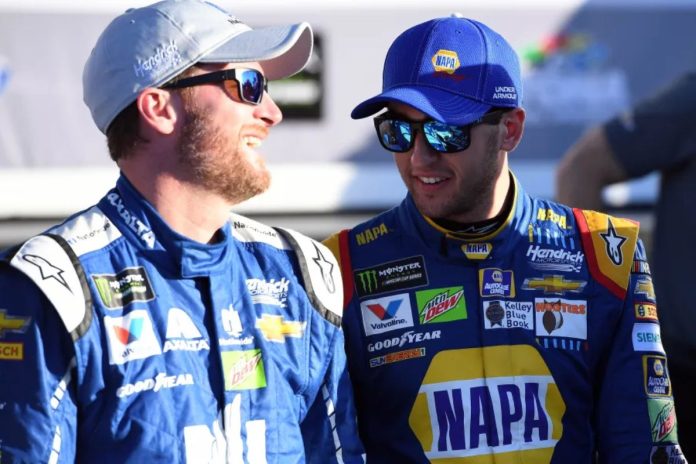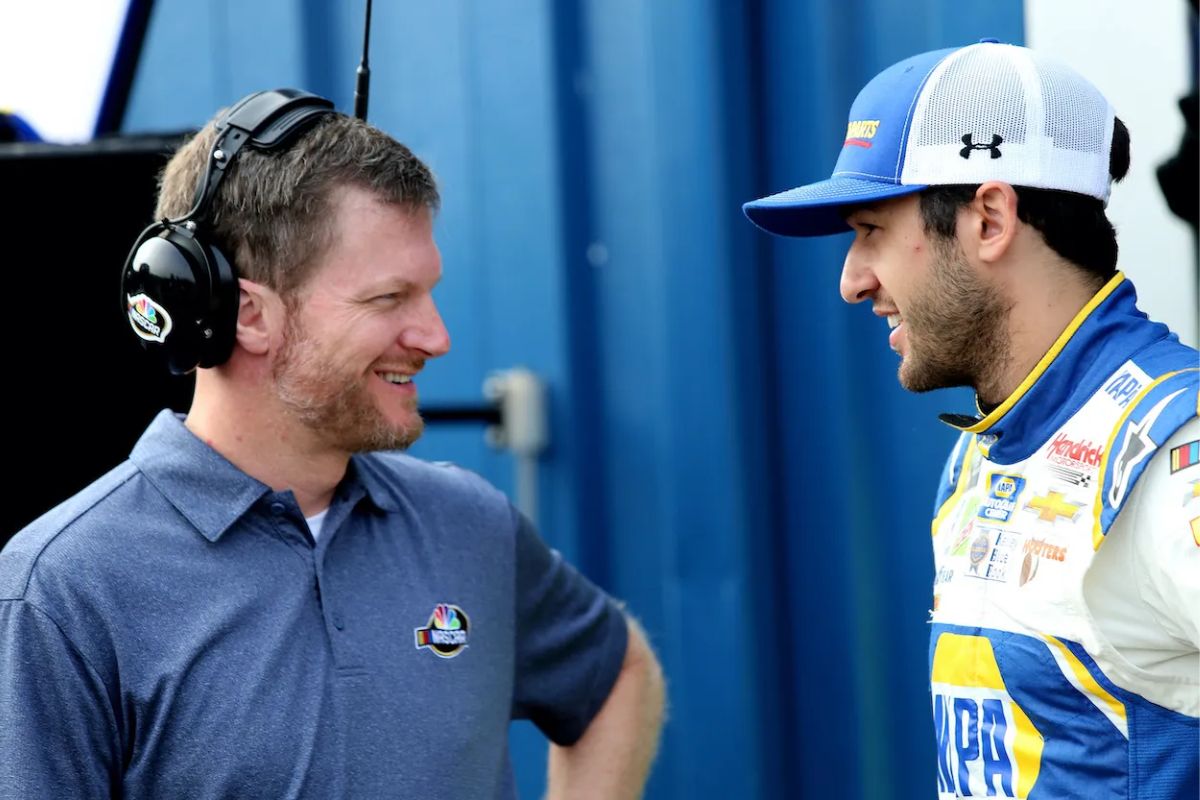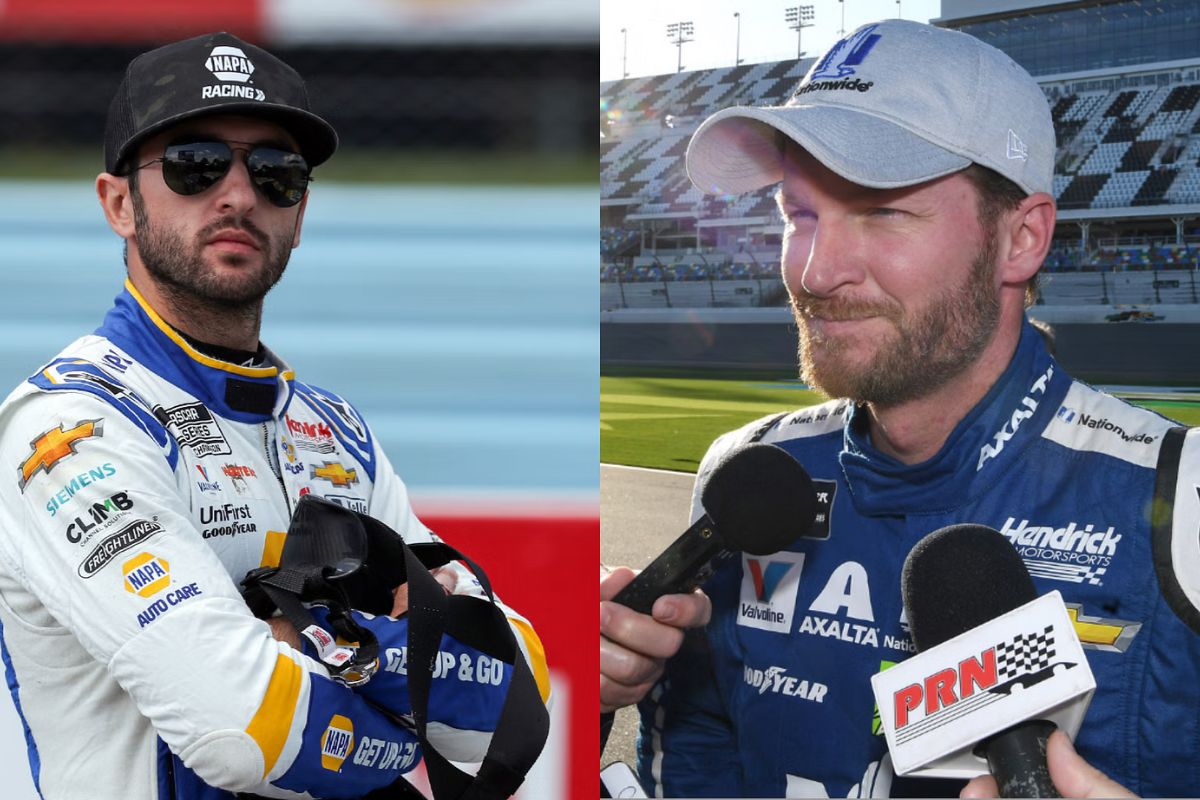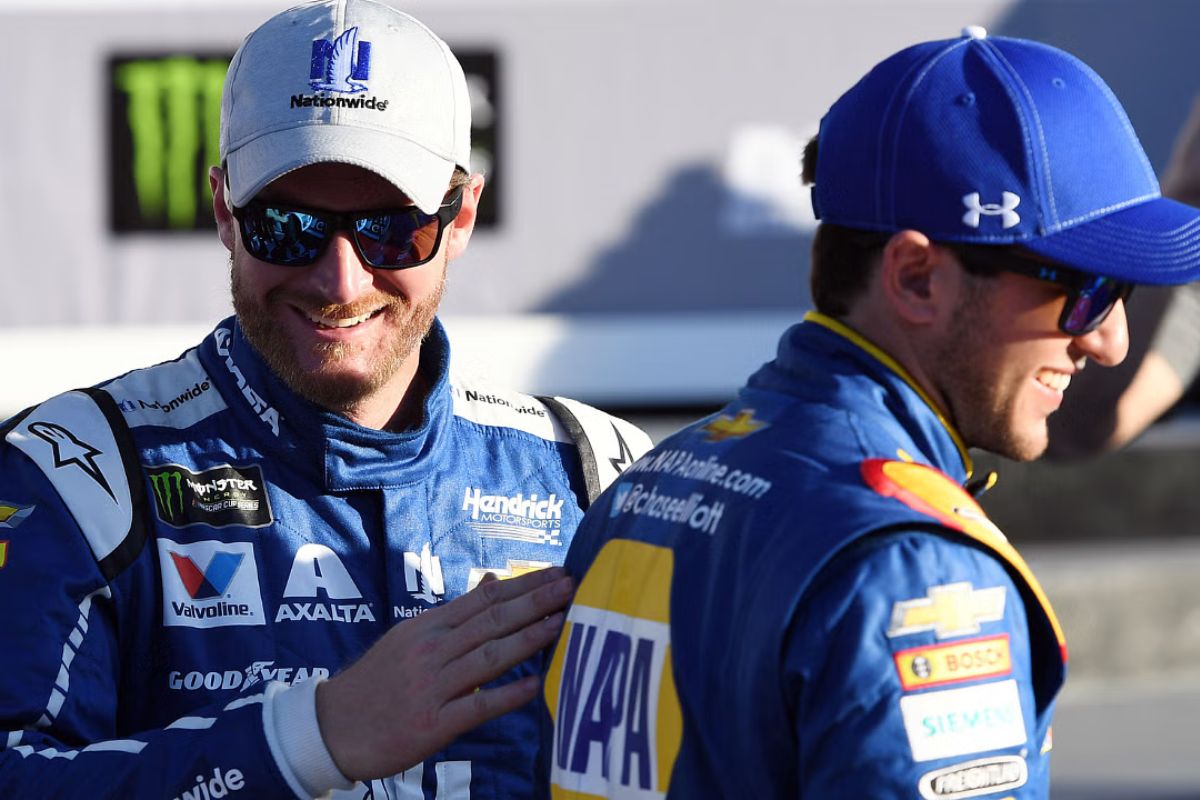Elliott Influences Dale Jr: The intriguing dynamic between Chase Elliott and Dale Earnhardt Jr. over the debate on NASCAR’s practice schedules offers a captivating insight into how veteran insights can influence evolving perspectives within the sport. While Earnhardt Jr. initially supported more extensive practice sessions, Elliott’s support for streamlined practices seems to have greatly altered his viewpoint. As this debate continues to unfold, it prompts one to ponder which stance might ultimately drive superior outcomes in NASCAR.
Key Takeaways
- Dale Earnhardt Jr. reconsidered his stance on extended practice sessions, influenced by Chase Elliott’s emphasis on adaptability and resource conservation.
- Elliott’s opposition to excessive practice highlights the importance of preserving genuine competition and driver skill without reliance on extended practices.
- Earnhardt Jr.’s shift reflects an openness to new ideas and strategies, aligning more with Elliott’s approach to racing efficiency.
- The dialogue between Elliott and Earnhardt Jr. showcases an evolving perspective on the balance between practice and natural driving talent.
- Elliott’s views help shape broader NASCAR strategies, focusing on making races more competitive and less predictable.
Brad Keselowski’s Call for Extended Practice
Brad Keselowski highlighted the challenges teams face with limited real track time in NASCAR. His stance emphasizes a critical pain point in the current racing landscape where the lack of on-track practice limits teams’ ability to adjust and optimize car performance effectively. Keselowski’s argument brings to light the growing reliance on simulation technologies that cannot fully replicate the dynamic and unpredictable nature of live racing environments.
This shift towards simulations has been largely driven by logistical efficiencies and cost considerations. However, Keselowski suggests that this trend might be compromising the quality of race preparations.
The call for more practice time is not just about additional laps; it’s about reclaiming a hands-on approach to tuning and teamwork. Extended sessions would presumably allow for a more iterative process of adjustments, where data from the track can be immediately analyzed and applied.
Dale Earnhardt Jr.’s Support for More Practice
Dale Earnhardt Jr. acknowledged the significant advantages these could provide, particularly for rookie drivers in enhancing their track familiarity and vehicle handling. Earnhardt Jr.’s encourages for increased practice time highlighted a broader understanding of how additional on-track sessions can serve as vital learning periods for new drivers.
“Teams might have saved money on not practicing. But they spent that money somewhere else, right all right! And if a team has a dollar to race on they’re going to spend that dollar all of it. If you save them some money here and save some money there, they’re still going to find a way to spend that dollar.”-(Dale Jr.)
Earnhardt Jr.’s position was strengthened by observations and a subtle understanding of motorsport dynamics. He pointed out the potential for improved safety outcomes. These opportunities can lead to more competitive races, as drivers are better prepared and teams can optimize car setups more effectively.
Chase Elliott’s Opposition to Extended Practice
Contrasting sharply with Dale Earnhardt Jr.’s position, Chase Elliott has voiced concerns about extending practice sessions, emphasizing a need for adaptability in professional drivers similar to the minimal practice norms of grassroots racing.
Elliott’s stance is rooted in a belief that excessive practice can dilute the unpredictability and raw challenge of racing, aspects that not only test a driver’s skill but also enhance spectator enjoyment.
“I think we have enough practice. I certainly can understand their perspective on guys either running a part-time schedule or um people that are running maybe full-time an Xfinity like um like Shane [van Gisbergen] is and then you know running a few Cup races here and there. But when I look at just the whole argument as a whole I look at short tracks across the country and there’s dirt track races that happen every Friday and Saturday night that they get literally five laps of hot laps and then they run the race. So, I’m like okay we’re supposed to be professionals you know and and we’re supposed to be at the top of our class. Why should we get an hour and a half when people that are trying to come up through the ranks only get five laps before the race.”- (chase)
- Preservation of Skill: He argues that the essence of racing lies in the ability to adapt quickly to varying conditions, a skill that is honed best under actual race challenges rather than extended practice.
- Resource Efficiency: By limiting practice time, resources can be conserved, including tires and fuel, which aligns with broader sustainability efforts within the sport.
Dale Earnhardt Jr.’s Changing Perspective
Reflecting on Chase Elliott’s reservations about extended practice sessions, Dale Earnhardt Jr. began to reconsider his own long-held beliefs about the necessity of ample track time. Traditionally viewing extensive on-track practice as indispensable for success, Dale Jr.’s perspective was deeply rooted in the conventional wisdom of motorsport.
Earnhardt’s openness to changing his stance highlights a broader adaptability and willingness to engage with new methodologies in racing. This shift is not merely about changing a personal opinion but rather indicates a significant evolution in his understanding of driver preparation and performance optimization.
His receptiveness to new ideas also highlights a maturity in thought processes, moving away from a one-size-fits-all mentality. It shows the importance of flexibility in strategies where technological advancements and changing regulations frequently alter the landscape.
Differing Opinions Among Drivers
Amidst the evolving perspectives on practice duration in NASCAR, drivers such as Ricky Stenhouse Jr and Michael McDowell have voiced concerns that extended sessions disproportionately favor well-funded teams.
“I think no practice for us or the limited practice for us has been a huge help of keeping us beating a few more cars than we would on a given weekend.” (McDowell)
Stenhouse Jr. and McDowell argue that longer practice periods allow teams with deeper pockets and better infrastructure to leverage their resources more effectively. This skews performance metrics in favor of these teams and diminishes the unpredictability that often makes racing compelling.
- Competitive Impact: The advantage gained by larger teams during prolonged practice sessions could lead to predictable and less exciting race outcomes.
- Strategic Dynamics: Teams may have to recalibrate their strategies, focusing not just on speed and efficiency, but also on how to best utilize limited practice time.
News in Brief: Elliott Influences Dale Jr.
The discourse surrounding the necessity of extended practice sessions in NASCAR reveals a dynamic shift in perspectives among seasoned drivers. Chase Elliott’s encouragement for reduced practice, emphasizing adaptability and efficiency, has notably influenced Dale Earnhardt Jr.’s evolving viewpoint on this issue.
This shift highlights a broader recognition within the sport of the potential benefits of conserving resources and enhancing genuine competition, suggesting a transformative approach to traditional racing preparation methods.
Our Reader’s Queries
Q. Is Dale Earnhardt Jr. a legend?
A. NASCAR icon Dale Earnhardt Jr. recently squared off against top-tier drivers at the New River All-American Speedway in Jacksonville this past Saturday. Despite his legendary status and two Daytona 500 victories, Earnhardt Jr. has hung up his racing gloves, retiring from competition at that elite level.
Q. Is Chase Elliott in a relationship?
A. Chase Elliott, the rising star of the racing world, remains unmarried for now. His heart belongs to Ashley Anderson, with whom he keeps a low profile, carefully navigating their relationship away from the prying eyes of the public.
Q. Why did Dale Jr. stop racing?
A. Dale Earnhardt Jr. had his reasons, and they all boiled down to one thing: autonomy. Reflecting on his decision, Earnhardt cited a period of deep consideration spanning several months, during which uncertainty loomed over his racing prospects for the upcoming season.
Q. Has Chase Elliott won a championship?
A. Fresh off his recent NASCAR championship win, Chase Elliott has firmly established himself as a leading contender in the Cup Series. Despite his victory, Elliott and his team continue to push forward relentlessly, refusing to relent in their pursuit of excellence.
ALSO READ: Chase Elliott’s Secret Injury Battle: The Untold Truth





